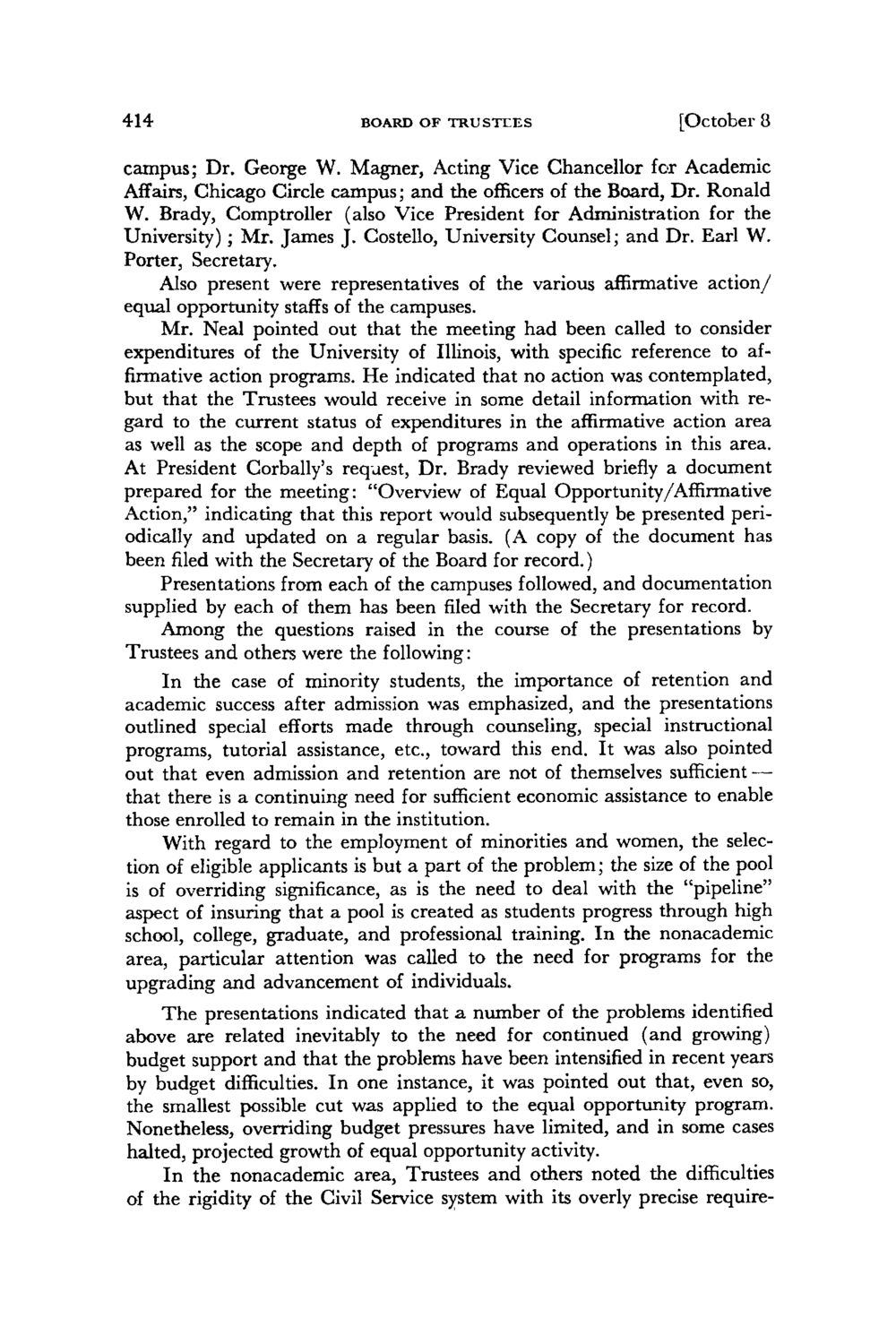| |
| |
Caption: Board of Trustees Minutes - 1976
This is a reduced-resolution page image for fast online browsing.

EXTRACTED TEXT FROM PAGE:
414 BOARD OF TRUSTEES [October 8 campus; Dr. George W. Magner, Acting Vice Chancellor for Academic Affairs, Chicago Circle campus; and the officers of the Board, Dr. Ronald W. Brady, Comptroller (also Vice President for Administration for the University); Mr. James J. Costello, University Counsel; and Dr. Earl W. Porter, Secretary. Also present were representatives of the various affirmative action/ equal opportunity staffs of the campuses. Mr. Neal pointed out that the meeting had been called to consider expenditures of the University of Illinois, with specific reference to affirmative action programs. He indicated that no action was contemplated, but that the Trustees would receive in some detail information with regard to the current status of expenditures in the affirmative action area as well as the scope and depth of programs and operations in this area. At President Corbally's request, Dr. Brady reviewed briefly a document prepared for the meeting: "Overview of Equal Opportunity/Affirmative Action," indicating that this report would subsequently be presented periodically and updated on a regular basis. (A copy of the document has been filed with the Secretary of the Board for record.) Presentations from each of the campuses followed, and documentation supplied by each of them has been filed with the Secretary for record. Among the questions raised in the course of the presentations by Trustees and others were the following: In the case of minority students, the importance of retention and academic success after admission was emphasized, and the presentations outlined special efforts made through counseling, special instructional programs, tutorial assistance, etc., toward this end. It was also pointed out that even admission and retention are not of themselves sufficient — that there is a continuing need for sufficient economic assistance to enable those enrolled to remain in the institution. With regard to the employment of minorities and women, the selection of eligible applicants is but a part of the problem; the size of the pool is of overriding significance, as is the need to deal with the "pipeline" aspect of insuring that a pool is created as students progress through high school, college, graduate, and professional training. I n the nonacademic area, particular attention was called to the need for programs for the upgrading and advancement of individuals. T h e presentations indicated that a number of the problems identified above are related inevitably to the need for continued (and growing) budget support and that the problems have been intensified in recent years by budget difficulties. I n one instance, it was pointed out that, even so, the smallest possible cut was applied to the equal opportunity program. Nonetheless, overriding budget pressures have limited, and in some cases halted, projected growth of equal opportunity activity. I n the nonacademic area, Trustees and others noted the difficulties of the rigidity of the Civil Service system with its overly precise require-
| |